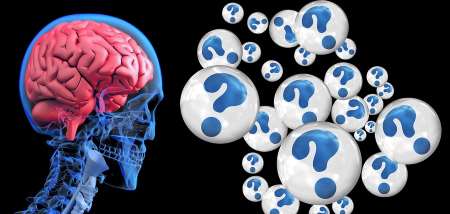According to Rambam, Jews and non-Jews have identical souls, which of course comes across as very surprising to most of us. But this stems from having a very simplistic understanding of the Rambam.
Let’s build it up from the basics:
The Rambam talks about the soul as simply the power of life. He says that life is a servant of the material. For example, a dog has a soul of life, a nefesh as we call it, and when the dog dies its nefesh dies too because the soul of the dog is here to serve the body of the dog. No dog, no soul.
A fish has a nefesh, when the fish dies the nefesh dies with it because the soul of the fish is a servant of the fish.
A human being too has a soul — which the Rambam calls a neshama — which is to the human being the same thing as the nefesh is to a dog. When a person dies that nefesh dies too.
Why? Because the only reason that the soul exists is that the body exists, and when the body ceases to exist that soul is gone too.
But then the Rambam says that a human being has another soul — which he calls nefesh or ruach — and this soul is an angel-like being. What defines it, in the Rambam’s language, is that it is an intellectual creature.
This soul existed before Hashem created bodies, and it will exist after bodies disappear. This soul is what constitutes the true advantage of man over the animal.
In other words, the human being has an additional source of life which did not become because of the body and therefore does not depart and disappear when the body is here no longer.
He also calls this a tzura, a form, versus chomer - matter.
* The Rambam goes on to say, that the way Hashem created this creation, this additional soul, is that we have some control over this tzurah — we can earn the life of Olam Haba, the spiritual eternal life, and we can also bring ourselves through our misdeeds to kareis and avadon and other terms which mean that a human being through his misdeeds can actually kill his neshama. That same soul we established existed before the material and survives after it, can be corrupted through the bad choices that we make, and it can be made immortal through the good choices that we make. The Rambam clearly divides the world, not by Jews and gentiles, rather by humans and animals, humans having the human soul which is in the image of G-d, b’tzalmeinu k’demuseinu, [which according to the Rambam means being a sechel nivdal, a being that is purely intellectual]. Chassidus and Kabbalah, however, maintain that a Jew is essentially different than a goy — he has a Nefesh Elokis, a G-dly soul, while non-Jews do not have it. Now, this is not a contradiction to Chassidus at all. [It goes without saying, that the Rambam acknowledges the chosenness of Am Yisrael, he just doesn’t address whether or not this affects their spiritual makeup. The Rambam’s opinion doesn’t negate this idea, he just doesn’t differentiate between a Jew and a non-Jew, but the two kinds of souls Kabbalah and Chassidus speak of, are both human souls.] I don’t know how exactly the Rambam would understand this concept. I have some theories and ideas, but I have not seen anything written about it explicitly.
How do Kabbalah and Chassidus explain the difference between a Jew and a gentile?
To explain this we must introduce the G-dly soul. What this means simply, is a soul that is a part of G-d, and therefore is first about Hashem and second about itself. This soul is completely and innately batel, nullified, to Hashem, which means that it can never be corrupted, it can be put into exile, but the pintele Yid, the core level of Judaism will always exist and can never be “exiled,” only asleep.
A Jew has this type of soul, while a gentile doesn’t.
What type of soul do non-Jews have according to Chassidus?
— They have a Nefesh Hasichlis, an intellectual soul. This intellectual soul is not batel to Hashem, but being purely intellectual, it doesn’t have a bias, and as a result, is able to understand things absolutely objectively and clearly.
If a non-Jew exercises his Nefesh Hasichlis as he should, to understand the purpose of his existence and his role in the creation as a servant of his Creator and he does what he must do, and of course the foundation of that is that he practices the Sheva Mitzvos B’nei Noach, the 7 mitzvos given to all humanity, he elevates himself.
Now, even though the nefesh of a non-Jew comes from the shalosh kelipos hat’meos, and generally these kelipos are beyond birur, they cannot be refined, it’s brought in Chassidus that even the shalosh kelipos hat’meo have a spark of G-dliness at their core, its just — to borrow a term from Halacha — that chaticha ne’eseis neveila, an originally kosher piece of meat may become itself unkosher under certain circumstances. In this case, the G-dly spark [which is what allows it to stay in existence] has dimmed to the point in which none of the light is apparent anymore for us to refine.
I would feel uncomfortable to go as far as saying that the gentile can transform his soul from kelipa to become a Nefesh Elokis, but certainly, he can redeem his soul and be a Chasid Umos Haolam who has a portion in Olam Haba.
Because of how novel, and potentially controversial, this idea is, I feel compelled to present its source:
It comes from a letter of the Rebbe, that appears in print in Likkutei Biurim (Korf) on Tanya, at the end of chapter 1, and also in the Rebbe’s Igros Kodesh vol. 1 letter nu. 14.
